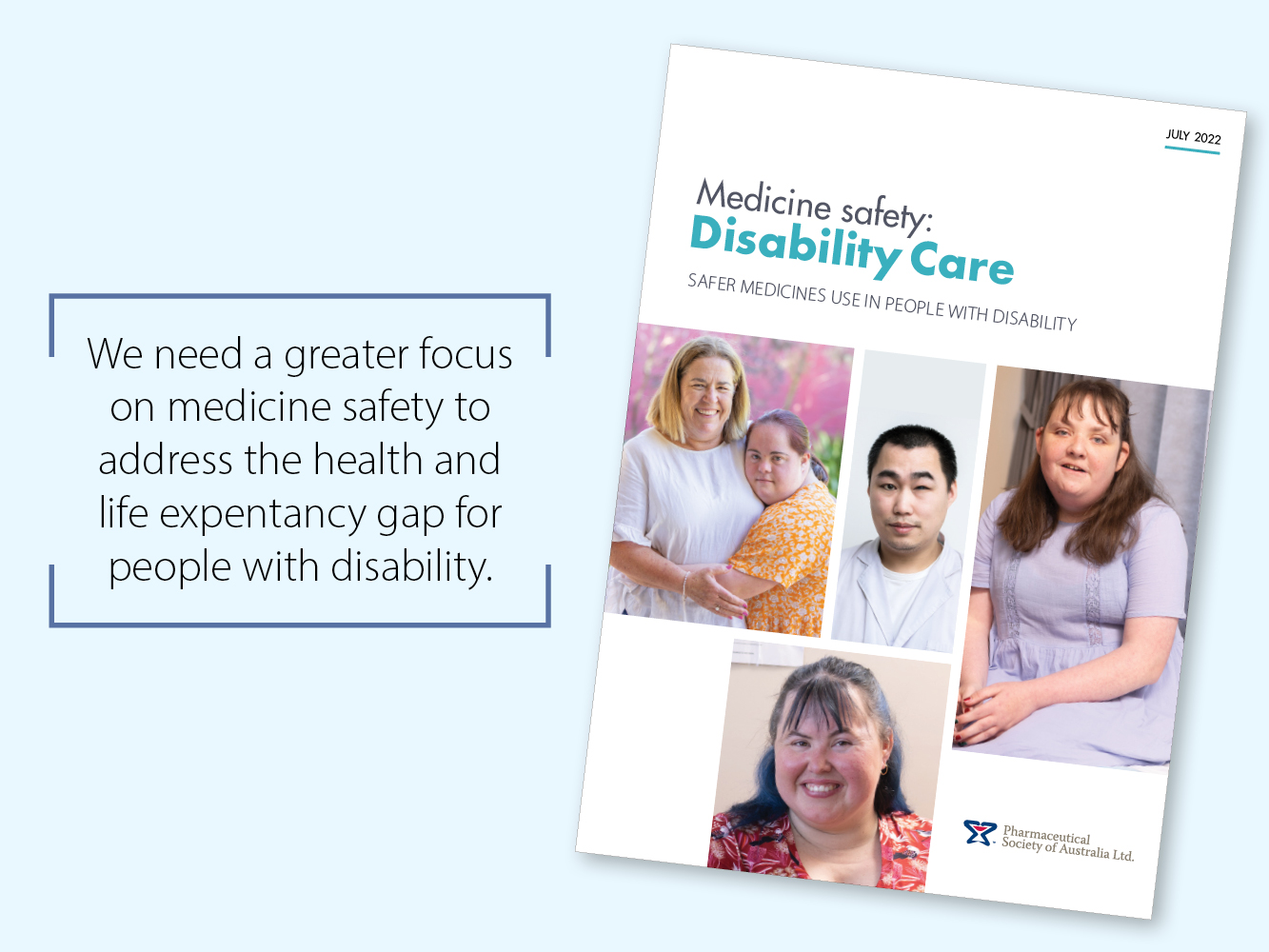“A greater focus on medicine safety is needed to help address the health and life expectancy gap for people with disability.”
Medicine safety: disability care report

This Medicine safety: disability care report is the fifth in our medicine safety series, focusing on the challenges that people with disability face in using medicines safely and effectively. The report found that people with disability face challenges at all stages of medicine use – prescribing, dispensing, administration and adherence, and monitoring.
The report also found that many medicine safety problems are likely unreported, as data generally does not include people with disability living independently, with family in home care, or in residential care, and very few Australian studies have been conducted on medicine safety issues experienced by people with disability.
Australian research has found that the overuse of chemical restraint remains a significant concern – almost 3 in 4 people with intellectual disability in a residential facility have been chemically restrained for more than five years.
There is a clear and pressing role for pharmacists to be engaged in medicine safety for people with disability. Pharmacists must be recognised as an essential service provider for people with special medicine needs and should be embedded wherever medicines are used.
The report recommends that medicine safety be improved across the disability sector by:
- Embedding pharmacist roles in disability provider organisations
- Enabling access to pharmacists under the NDIS (particularly access to medication management services)
- Allowing pharmacists to administer vaccines and injectable medicines in flexible settings (such as at home)
- Enhancing quality indicators for disability care.
